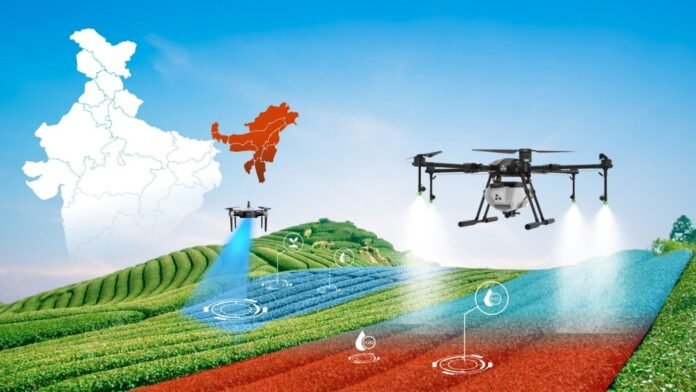One of the most beloved drinks in the world, tea, maintains a special position in India’s North-East and has a big economic impact there. A ground-breaking project on drone-based soil and plant health analysis has been given a special grant by the Biotechnology Industry Research Assistance Council (BIRAC) of the Government of India under the prestigious Biotech Ignition Grant (BIG) for the North-East Region to leading drone-tech company IG Drones in order to increase the sustainability and productivity of tea gardens. The initiative, which is being spearheaded by IG Drones CTO and Co-Founder Sambit Parida, aims to transform the way tea is grown, advance environmental sustainability, and stimulate socioeconomic growth in the area. This project promises to transform farming methods, reduce climatic hazards, and promote innovation and entrepreneurship, which will have a significant positive socioeconomic impact on the area.
The North-East region’s tea gardens face a number of difficulties, including the requirement for accurate and timely information on soil and plant health. Farmers have historically relied on labour- and time-intensive manual methods to monitor soil moisture, nutrient levels, and pest infestation. By utilising cutting-edge drone technology to gather data on critical factors in real-time, the drone-based soil & plant health analysis project by IG Drones, a KIIT TBI supported startup seeks to overcome these difficulties and offer tea growers invaluable insights to improve their farming practises.
The possibility for enhanced crop management and increased productivity is one of the project’s major socioeconomic benefits. Drones may gather information on soil moisture, nutrient levels, and pest infestation. This information enables farmers to make informed decisions about fertilisation, irrigation, and pest control. This makes it possible to apply resources precisely, lowering costs and having a smaller negative impact on the environment while increasing crop yields. Increased productivity results in higher earnings for tea producers, enhancing both their financial security and the region’s general economic growth. Today, 70% of the tea produced in India is consumed there, making it one of the greatest producers in the world. The Northeast is ideal for the growth of tea leaves due to its hilly terrain, fertile soil, and humid climate. Huge tea gardens in states like Assam, Sikkim, Tripura, Arunachal Pradesh, and Nagaland produce some of the best tea in the nation.
“This project will not only give tea farmers useful insights into the health of their soil and plants, but it will also help them make data-driven decisions to optimise their crop management strategies,” said Sambit Parida, CTO of IG Drones.
Through early disease and pest detection utilising drones, minimising the use of toxic chemicals, and safeguarding the region’s delicate ecosystem, the project encourages environmental sustainability in tea cultivation. In order to reduce water waste and enable optimal water use in areas like the North-East that are water-stressed, the initiative also promotes the use of precision irrigation.
The project also equips tea producers with cutting-edge technology, encouraging entrepreneurship and innovation in the area. Drones are at the vanguard of agricultural innovation, enabling farmers to adopt data-driven, tech-enabled precision farming practises. This improves the productivity and sustainability of the tea industry while also providing new business prospects for regional entrepreneurs and companies operating in the agricultural technology sector. The programme promotes tea producers to use cutting-edge practises and contemporary agricultural methods to increase their competitiveness in the world market for tea.
“The tea industry places a great deal of importance on the North-East. According to Bodhisattwa Sanghapriya, CEO of IG Drones, “We are honoured to be in the forefront of agricultural innovation in the area and look forward to improving the livelihoods of tea growers with this project.”
It is impossible to exaggerate the significance of such developments for the North-East Region. Many villages in the area rely heavily on tea gardens as a source of income because they create jobs and boost the local economy. The drone-based soil & plant health analysis project funded by BIRAC aims to enhance the sustainability and productivity of tea gardens, ensuring the long-term prosperity of tea farmers and their communities.


